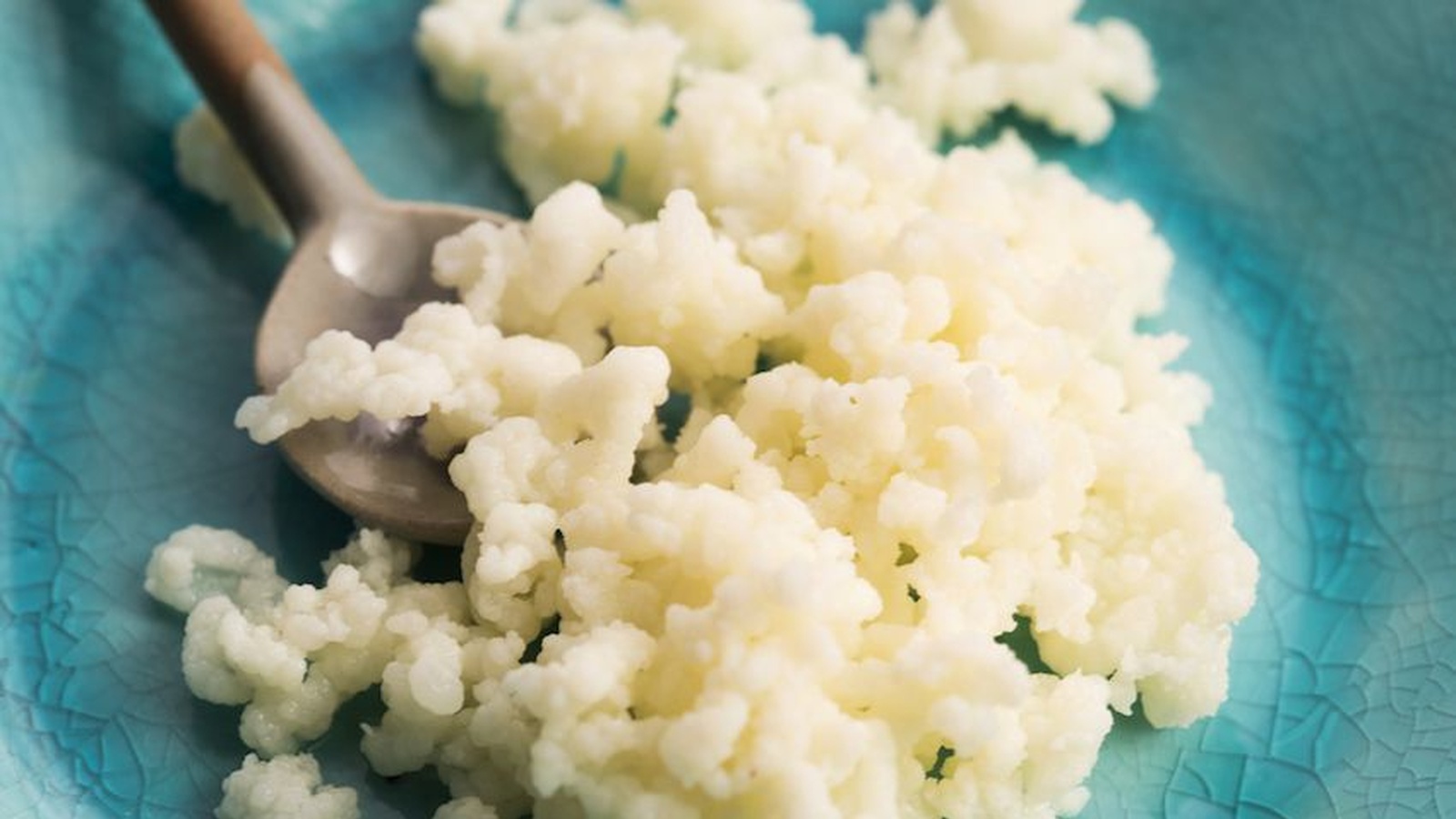Kefir: What Is It And Why Should You Use It
Kefir is a traditional Middle Eastern beverage that has incredible health benefits.
Our ancestors were well aware of its healing power with ‘kefir’ originating from the Turkish word ‘Keyif’, which means ‘good feeling’. Kefir is made from any type of milk (cow, sheep, goat, coconut, dairy, camel) with the addition of a gelatinous or white ‘cauliflower’ or ‘coral’ looking grain which ferments the milk.
This fermentation process creates a fizzy, tart, acidic-tasting milk product, with the consistency of drinkable yogurt, which is teeming with probiotic bacteria and yeast. It is also loaded with many vitamins, nutrients and minerals which are easily digested. The grains should be removed with a plastic strainer before consuming and added to a new batch of milk with a small amount of the original kefir.
What Does The Fermentation Process Do?
The fermentation process not only changes the flavor and consistency of the milk, but also the nutritional value. Here are some of the changes that occur:
- Kefir is full of probiotics, which are live bacteria. Consuming kefir increases the amount of good bacteria in the gut, which not only helps to digest food but also has many therapeutic benefits.
- Lactose is broken down to lactic acid, meaning dairy kefir can generally be enjoyed (when it has been fermented for over 24 hours) by those who are lactose intolerant.
- Proteins are predigested during fermentation, making the milk easier for the body to digest.
- Significant amounts of minerals are found in kefir including calcium, potassium, magnesium, phosphorus, zinc, copper and iron.
- Certain vitamins including vitamin B12, folic acid, vitamin C, vitamin K and biotin can be produced through fermentation, depending on the grain used.
What Makes Kefir Unique?
Studies are now discovering that kefir has many amazing impacts on health. Here are just a few of the therapeutic benefits of kefir:
- Anti-cancerous: Human studies have linked the intake of fermented milk products to a decreased risk of breast cancer in women.
- Anti-tumorous: Animal studies have found that kefir reduces tumor size and the onset of cancer. A specific study on mice with induced breast cancer found that within just 27 days of kefir consumption, tumor size had decreased and beneficial immune cells had increased. These results have been replicated in animals with varying types of cancer.
- Anti-microbial: Kefir has an antibacterial effect against many harmful organisms, particularly those affecting the gastrointestinal tract and vagina. Laboratory tests found kefir had a preventative effect against bacterial infections including E Coli, Listeria and Salmonella.
- Immune System: Kefir increases the number of beneficial immune cells within the body, which strengthens the immune response.
- Anti-inflammatory: Studies have found kefir to have an anti-inflammatory effect in the body. A number of studies on asthma-induced mice found kefir displayed an anti-inflammatory and anti-allergenic effect.
Have You Tried Making Your Own Kefir Before?
Finding kefir grains to get you started can be a little tricky, but if you ask around at your local farmer's market and health food stores, you should find some in no time.
You may like to try the following:
Do you have a passion for nutrition & natural healing?. Learn more about the Food Matters Nutrition Certification Program here.


